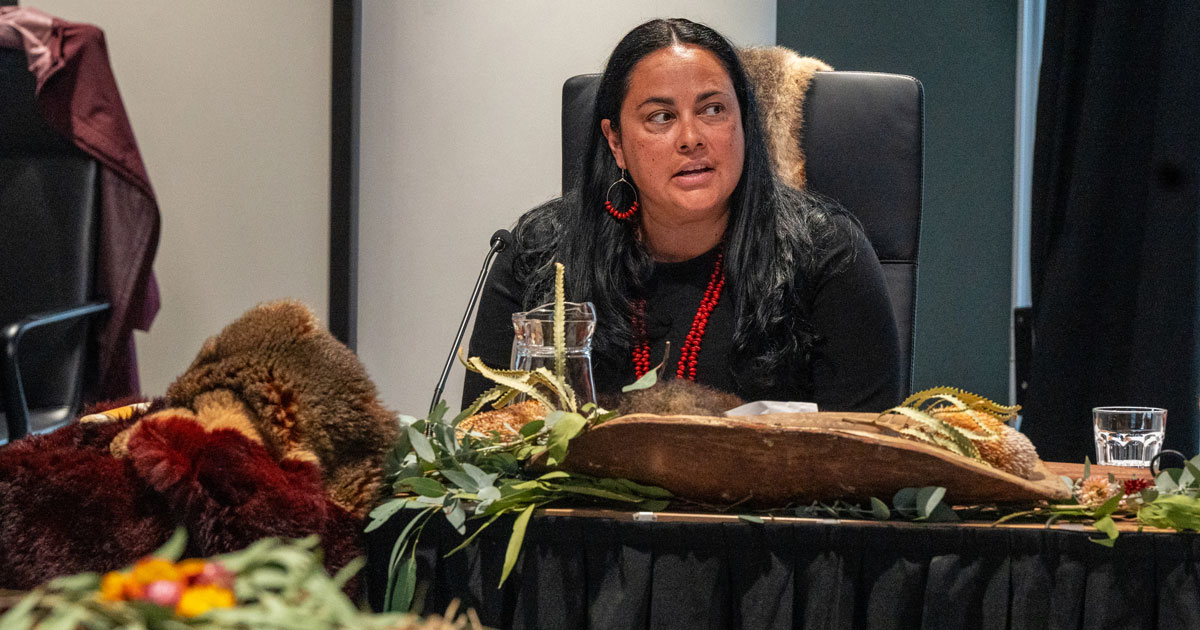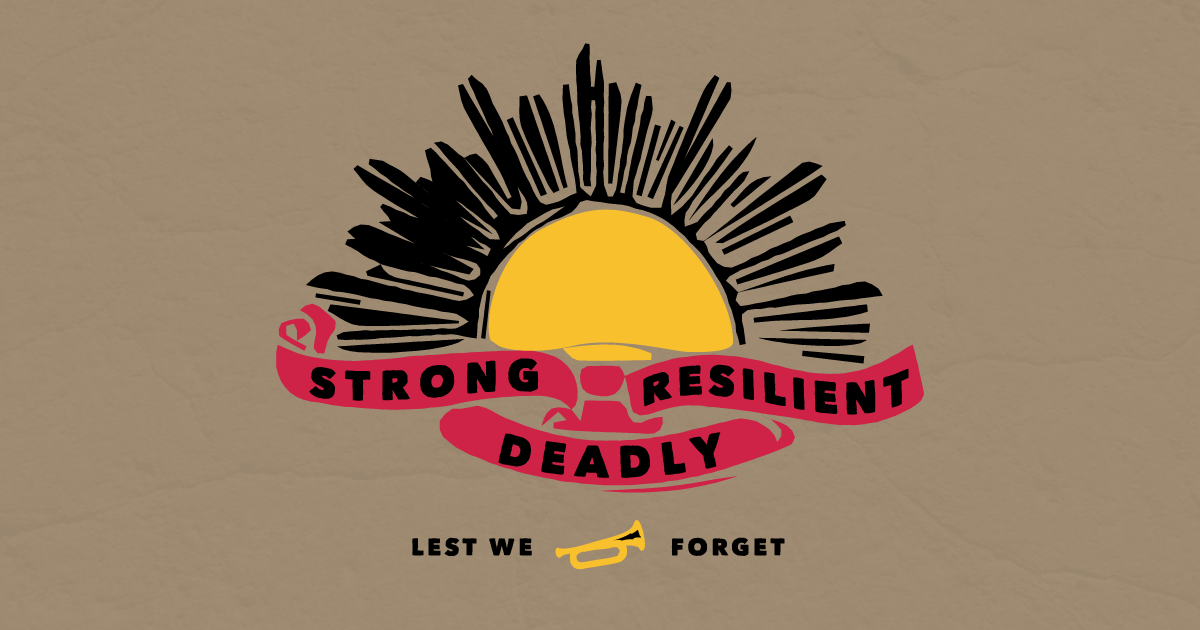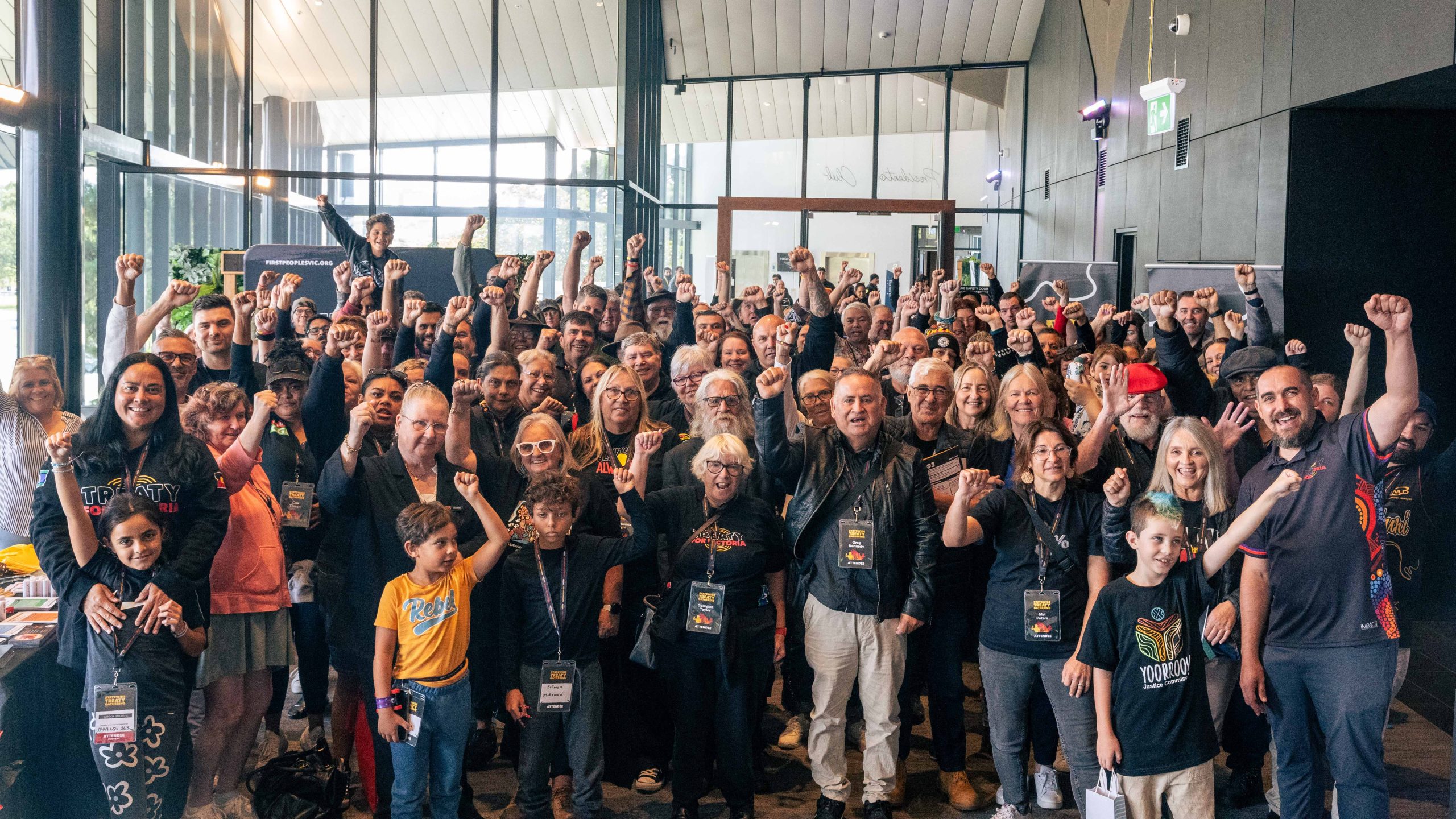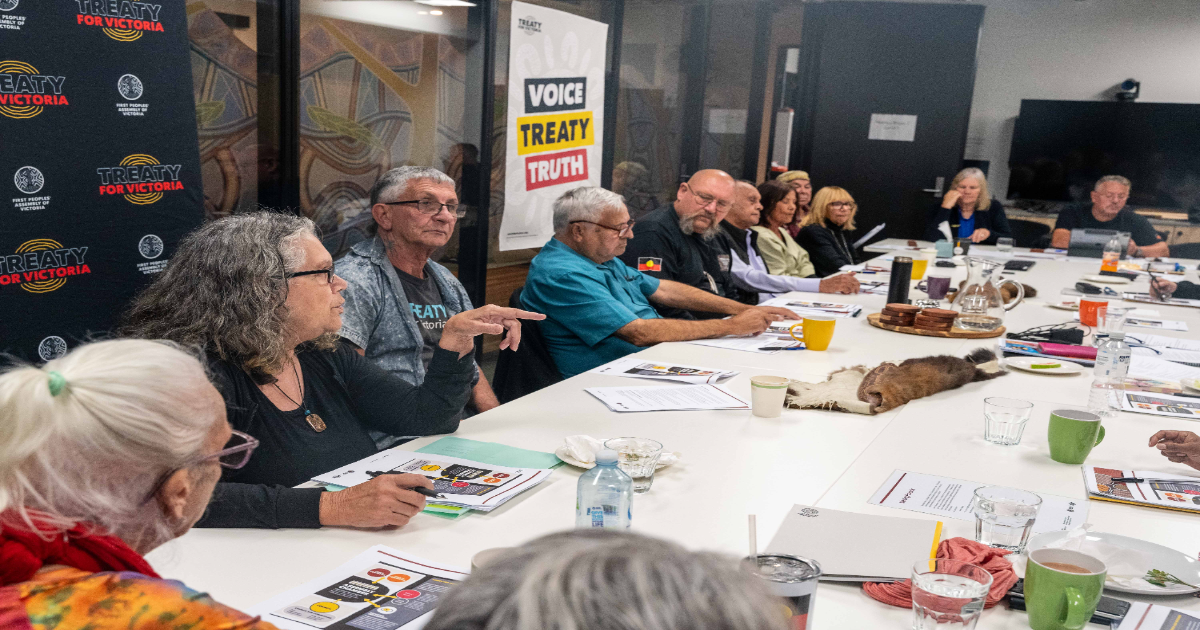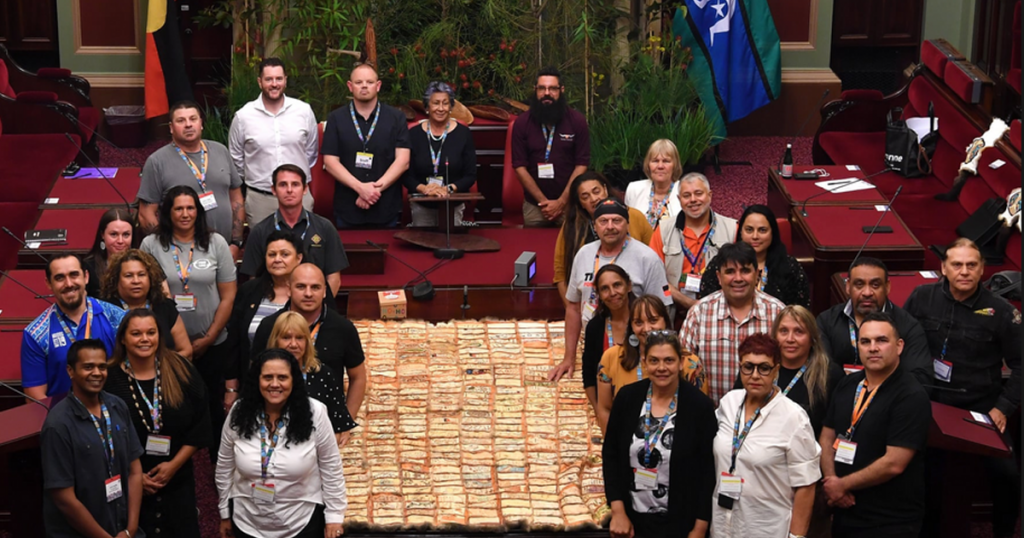
At a full Chamber session today, the First Peoples’ Assembly of Victoria gave its blessing to an ambitious Treaty Negotiation Framework that Assembly Members developed following extensive community engagement and consultations.
There will be ongoing community consultations to flesh out the details of the key elements of the Framework, but the vote paves the way for the Assembly to advance discussions with the Victorian Government about the ground rules and architecture that will enable future negotiation of Treaties between the State and Traditional Owners.
Assembly Co-Chair and Bangerang and Wiradjuri Elder, Geraldine Atkinson, said the broad agreement amongst the Members and Community represents a giant step towards meaningful structural reform and self-determination in Victoria.
“Treaty is a chance to address the corrosive legacy of invasion, improve the lives of our people, and allow everyone in Victoria to create a future together as equals. We still have a long journey ahead of us, but we’re making great progress together – the many yarns, all the community meetings, it can be hard work, but it’s worth it. This is our chance to secure meaningful positive change for First Peoples,” said Aunty Geraldine.
At the heart of the Framework is a firm commitment to self-determination and ensuring First Peoples have the freedom and power to make the decisions that affect First Peoples.
Key elements of the Framework include:
Treaties
The Assembly will be pushing for both a state-wide Treaty that will cover state-wide matters, and also empowering Traditional Owners to negotiate local Treaties that reflect their needs and priorities.
A meaningful voice
The Assembly will be asking Community to consider whether the Assembly should push for seats in the Victorian Parliament for the Aboriginal and Torres Strait Islander community in Victoria, whether Community should have its own permanent representative body with meaningful decision-making powers, or whether the Assembly should push for both of these options.
An independent umpire
To achieve these things, an initial step the Assembly will call for is to have the Government give up some of its power ahead of the negotiations by establishing an independent Treaty Authority. This would be a neutral umpire that will facilitate negotiations and help resolve any disputes that arise.
Capacity building
As Traditional Owners must be able to enter into Treaty negotiations with the State on an equal footing, the Assembly will seek an Aboriginal controlled and managed Self-Determination Fund that is capable of addressing current power imbalances with the State. In the first instance, Traditional Owners must be resourced adequately to ensure that Treaty negotiations are fair and take place on an equal playing field. In the longer term, if Treaties are to mean anything then Traditional Owners must have the economic and other resources to be able to drive their own priorities and aspirations.
“These are big steps on the journey to Treaty, but they are early steps and we want and need more Community guidance about many of the details. Nothing is off the table at this stage, so we need to think big and push hard. But to get it over the line, we’re going to need Community to get behind us. So please, if you’re mob and haven’t already enrolled with the Assembly, do so today. Get on board and have your say,” said Aunty Geraldine.
Assembly to create additional pathways to representation for Traditional Owner groups
Assembly Members today also voted to adopt a proposal to change its representation arrangements for Traditional Owners who want to participate in the Treaty process.
Assembly Co-Chair and proud Nira illim bulluk man of the Taungurung nation, Marcus Stewart, said today’s vote will provide additional pathways to recognition for Traditional Owner Groups who have not completed the Government’s protracted process for gaining formal state recognition under legislation.
“We’re not going to let ourselves be constrained or limited by the white colonial structures. Treaty is about putting Aboriginal people in the driver’s seat. Self-determination isn’t just the destination, it’s also how we get there. It is at the heart of everything we do at the Assembly and we will decide how we organise ourselves and how we choose our representatives,” said Marcus.
The Assembly’s structure features a combination of ‘open seats’ – in which anyone who is a Traditional Owner in Victoria can be elected to, and ‘reserved seats’ – which formally recognised Traditional Owner Groups select a representative for. The change will see the Assembly create its own process through which Traditional Owners – of Country that is not currently represented by a formally recognised Traditional Owner Group – will be able to apply to Chamber for the creation of additional reserved seats.
After months of consultation and consideration, the Assembly has agreed upon criteria – such as size of the group, governance structure, and connection to Country – for additional reserved seats. It will begin accepting applications once details of the application process have been finalised and will make a further announcement at that point.
“The path to Treaty might be long and winding, but it needs to be wide enough for all of us. Together we will ensure First Peoples in Victoria have a clear and powerful voice on this journey,” said Marcus.
For media enquiries and further information, please contact us.
